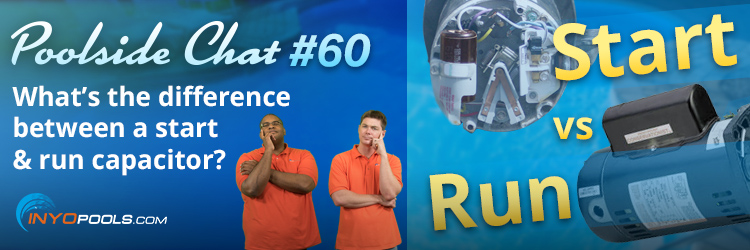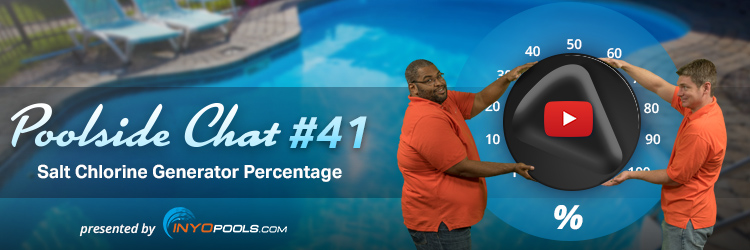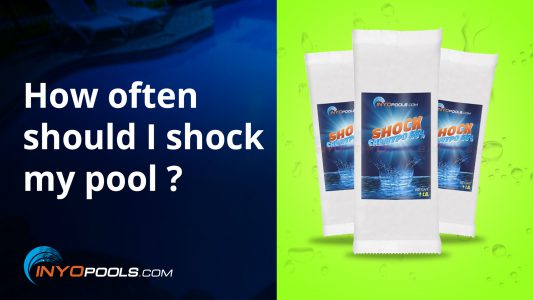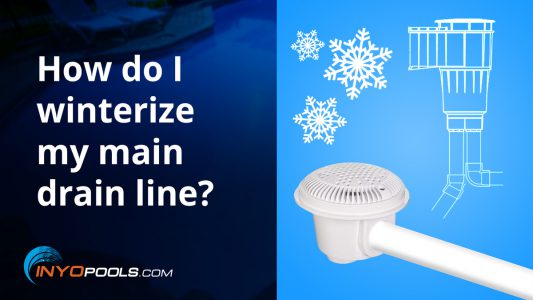- What’s the Difference Between a Start and Run Capacitor?
My new motor has a capacitor on the top and the back, but my old motor only had a capacitor on the back. What is the difference?
-Inyo Forum
First off, the capacitor we’re referring to is the battery shaped barrel on the back or the top of the motor. The pool owner with the questions sounds like their original motor was considered a capacitor-start motor. That’s a very common standard efficiency motor. It uses a start capacitor in the back to provide extra torque when the motor turns on. The start capacitor gets taken out a circuit once the motor reaches two-thirds to three-quarters of the full speed. The new motor is a capacitor-start, capacitor-run motor. This is an increased efficiency version that has a run capacitor on top and a start capacitor on the back. The run capacitor remains in circuit at all times. Makes it a little more energy efficient.
No matter the capacitor count, it’s still going to spin your motor just as the original. Yes, it’d be the same thing but should run slightly less energy consumption.











Keep these chats coming. Very helpful for non-technical people who want to understand all the working components of a pool.
Hi INYO Pools Team,
My name is Anuj Agarwal. I’m Founder of Feedspot.
I would like to personally congratulate you as your blog INYO Pools has been selected by our panelist as one of the Top 40 Swimming Pool Blogs on the web.
https://blog.feedspot.com/swimming_pool_blogs/
I personally give you a high-five and want to thank you for your contribution to this world. This is the most comprehensive list of Top 40 Swimming Pool Blogs on the internet and I’m honored to have you as part of this!
Also, you have the honor of displaying the badge on your blog.
Best,
Anuj
Thanks, Anuj.
I may be biased, but I think we should be higher on the list. 🙂
Lmao good answer Mathew. I agree you, you should definetly be higher on the list. That’s being said from a technician with 17 seasons under my belt. Great info found here especially part#s for myself and your patients is far beyond mine. For a seasoned Tech. The questions we recieve are much entertainment but I guess the same can be said for myself when I ask about my vehicle. Lol just thought I’d say good job and keep up the good work your knowledge and mastering of your craft is evident….
Thanks again
Gary The Pool Dr. LLC
Thank you, Mr Lynch.